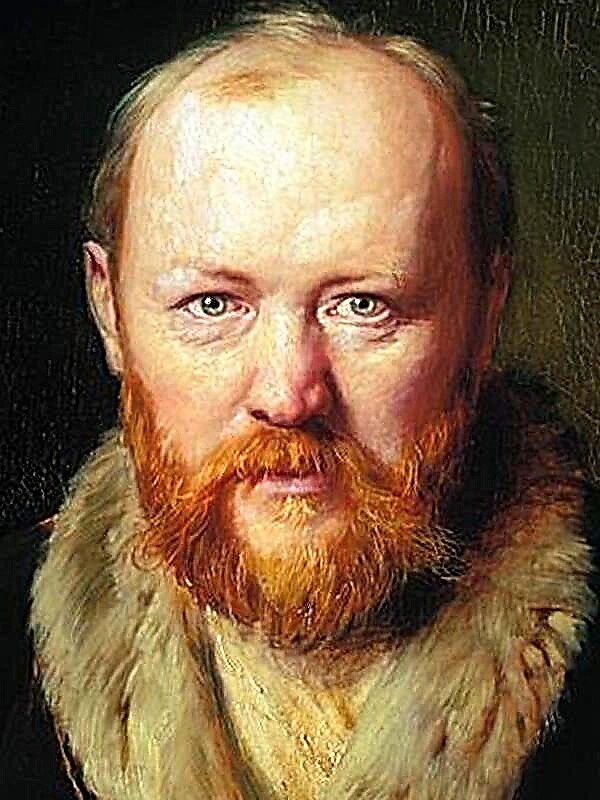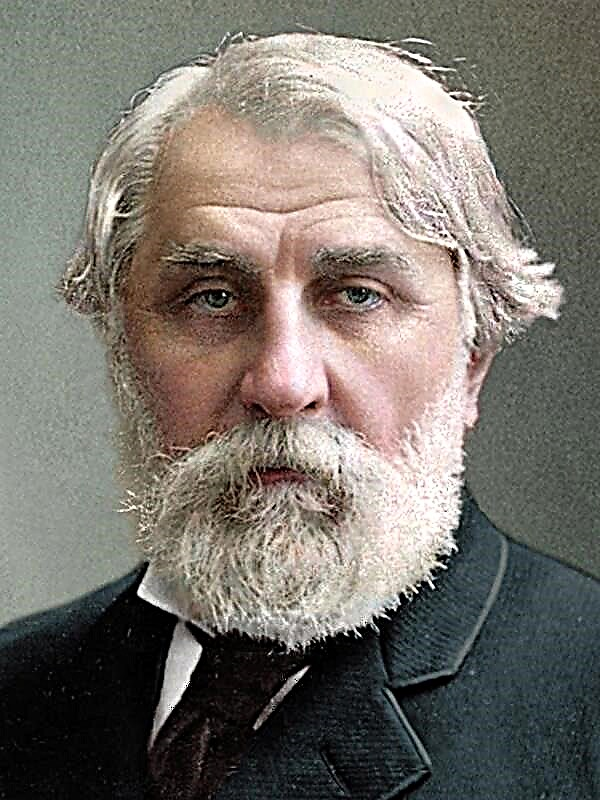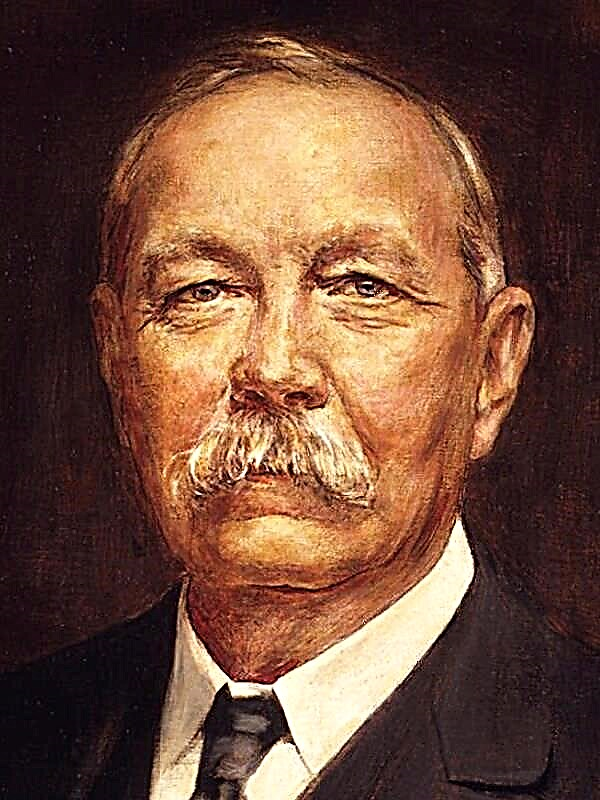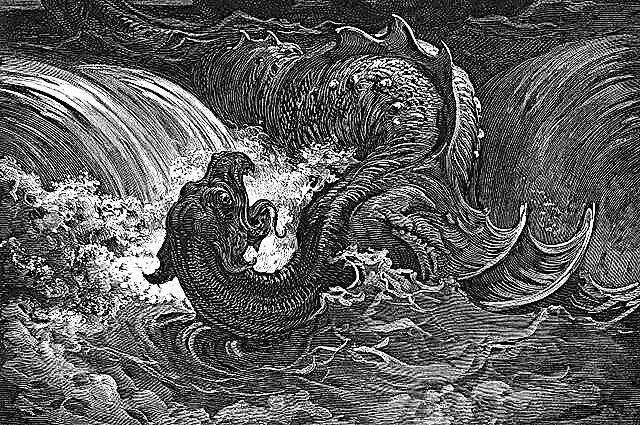Menippus tells the Friend about his extraordinary journey, striking the interlocutor with accurate data on the distance from the Earth to the Moon, to the Sun and, finally, to the very sky - the abode of the gods of the Olympians. It turns out that Menippus only returned to Earth today; he was visiting Zeus.
A friend doubts: did Menippus surpass Daedalus, becoming a hawk or a daw ?! He sneers: “Well, oh great brave man, were you not afraid to fall into the sea and give him the name of Menippeus on your behalf, like that of his son - Ikari?”
Menipp had long been interested in everything related to the nature of the universe: the origin of thunder and lightning, snow and hail, the change of seasons, the variety of moon shapes and much more. First he turned to the long-bearded and pale philosophers. But each of them only challenged the opinions of others, arguing the opposite, and demanded that they believe only him. Having taken considerable money from Menippus for science, they doused him with a rain of root causes, goals, atoms, voids, matter, ideas and other things. Stepping only on the ground, often being weak and even shortsighted, they boastfully talked about the exact sizes of the Sun, stars and the peculiarities of supralunar space. How many stadia from Megara to Athens, they do not know. But the distance between the luminaries supposedly known to them, measure the thickness of the air and the depth of the ocean, the circumference of the Earth and much more. Speaking about objects that are far from clear, they are not satisfied with assumptions, but persistently insist on their righteousness, asserting, for example, that the Moon is inhabited, that the stars drink water, which the Sun draws from the sea, as if on a well rope, and distributes it equally between them.
Menippa is also outraged by the contradictory opinions of philosophers, their “complete disagreement” on the issue of peace: some argue that it was not created and will never perish, others recognize the Creator, but cannot explain where it came from. There is no agreement among these scientists about the finiteness and infinity of being, some believe that there are a large number of worlds, while others believe that this world is unique. Finally, one of them, far from being a peace-loving person, considers discord the father of the whole world order. Some also believe that there are many gods, while others believe that God is one. And others generally deny the existence of the gods, leaving the world to the mercy of fate, depriving it of its lord and leader.
Having lost all patience from this confusion of judgment, Menippus decides to find out all by himself, ascending to heaven. Catching a large eagle and hawk, he cuts off their wing and, taking into account the tragic experience of Daedalus with fragile wax, fastens the wings tightly to his shoulders. After test flights from the acropolis, the daredevil flew over a considerable part of Hellas and reached Taygetus. From this famous mountain, Menipp flies to Olympus and, having stocked the lightest food there, soars into the sky. Breaking through the clouds, he flew up to the Moon and sat down on it to rest and, like Zeus, surveyed all the lands he knew from Hellas to India.
The earth seemed to Menippus very small - smaller than the moon. And only taking a closer look, he discerned the Colossus of Rhodes and the tower on Foros. Using the advice of the philosopher Empedocles, who had never taken the moon, he remembered that he had one wing - an eagle! But none of the living creatures sees better than an eagle! At that very moment, Menippus began to distinguish even individual people (his eyesight was so sharply sharpened). Some sailed the sea, the second fought, the third worked the land, the fourth sued; I saw women, animals, and in general everything that "nourishes fertile soil."
Menipp also saw how people continually sin. Debauchery, murder, executions, robberies took place in the palaces of Libyan, Thracian, Scythian and other kings. “And the life of private individuals seemed even funnier. Here I saw Hermodor the Epicurean swearing a false oath due to a thousand drachmas; Stoic Agathocles, who charged one of his students with a court for non-payment of money; orator Clinius, stealing the chalice from the temple of Asclepius ... "In a word, in the diverse life of earthlings, the ridiculous, the tragic, the good, and the bad were mixed. Most of all, Menippus laughed at those who were arguing about the boundaries of their possessions, for from above all of Hellas seemed to him “the size of a finger of four. From such a height, people seemed to Menippus akin to ants - after all, ants, apparently, have their own builders, soldiers, musicians and philosophers. Moreover, according to legend, for example, Zeus created the warlike myrmidonians precisely from ants.
Looking at all this and laughing heartily, Menipp flew even higher. In parting, Luna asked to intercede for her before Zeus. Earthly philosophers-talkers spread all kinds of fables about the Moon, and this, she admitted, is tired of it. It will no longer be possible for the moon to remain in these places if it does not crush the philosophers into powder and shut their mouths to these talkers. Let Zeus destroy Stoyu, smash the Academy with thunder and stop the endless ranting of peripatetics. Climbing to the far sky, Menippus was met by Hermes, who immediately reported to Zeus about the arrival of an earthly guest. The king of the gods graciously accepted him and listened patiently. And then he went to that part of heaven from where the prayers and requests of people were best heard.
On the way, Zeus asked Menipp about earthly affairs: how much is wheat in Hellas now, do you need heavy rains, is there at least someone from the family of Phidias, and if the robbed temple in Dodon was detained. Finally a question followed; “What do people think about me?” “About you, Vladyka, their opinion is the most pious. People consider you the king of the gods. "
Zeus, however, doubts: the times have passed when people revered him as the supreme god, and as a prophet, and as a healer. And when Apollon founded the diviner in Delphi, Asclepius in Pergamum - a hospital, the temple of Bendida appeared in Thrace, and Artemis in Ephesus, people ran to the new gods, Zeus now only make sacrifices to Olympus every five years. And Menippus does not dare to object to him ...
Having sat on the throne where he usually listened to prayers, Zeus began to take off the covers one by one from openings resembling wells. From there came people's requests: “Oh Zeus, let me achieve royal power!”, “Oh Zeus, let the onions and garlic grow!”, “Oh gods, let my father die as soon as possible!”, “Oh Zeus, let me I will be crowned at the Olympic competitions! "...
Mariners asked for a fair wind, farmers - for the sending of rain, cloths - for sunny weather. Zeus listened to everyone and acted at his discretion.
Then he took off the lid from another well and began to listen to the oaths, and then he engaged in predictions and oracles. After all, he gave instructions to the winds and weather: “Today, let it rain in Scythia, let thunder thunder in Libya, and let it snow in Hellas. You, Borean, blow in Lydia, and you, Noth, remain calm. ”
After this, Menippus was invited to the feast of the gods, where he reclined near Pan and the Caribbean - gods, so to speak, second-rate. Demeter gave them bread, Dionysus gave wine, and Poseidon gave fish. According to the observations of Menippus, the highest gods themselves were treated only with nectar and ambrosia. The greatest joy to them was the child rising from the victims. During lunch, Apollo played cifar, Silenus danced a cord, and the muses sang from Hesiod's Theogony and one of Pindar's victorious odes.
The next morning, Zeus ordered all the gods to come to the meeting. The reason is the arrival of Menippus in the sky. And before Zeus with disapproval observed the activities of some philosophical schools (Stoics, academics, Epicureans, peripatetics, and others): "Hiding behind the glorious name of Virtue, wrinkling their foreheads, long beards, they walk around the world, hiding their vile way of life under a decent appearance."
These philosophers, corrupting youth, contribute to the decline of morals. Not caring about the benefits of the state and private individuals, they condemn the behavior of others, most respecting those who shout and swear the loudest. Despising hardworking artisans and farmers, they will never help the poor or the sick. “But the so-called Epicureans are superior to all of them with their impudence. Swearing us gods, without any constraint, they go so far as to dare to claim that the gods do not care at all about human affairs ... "
All gods are indignant and ask immediately to punish the wretched philosophers. Zeus agrees. But I have to postpone the execution of the sentence: the next four months are sacred - God's peace has been declared. But already next year, all philosophers will be ruthlessly destroyed by Zeus lightning. As for Menippus, though they welcomed him here favorably, it was decided to take his wings from him, “... so that he would not come to us anymore and let Hermes bring him down to Earth today.”
Thus ended the meeting of the gods. Menippus returned to Earth and hastened to Ceramics to inform the philosophers walking there the latest news.












